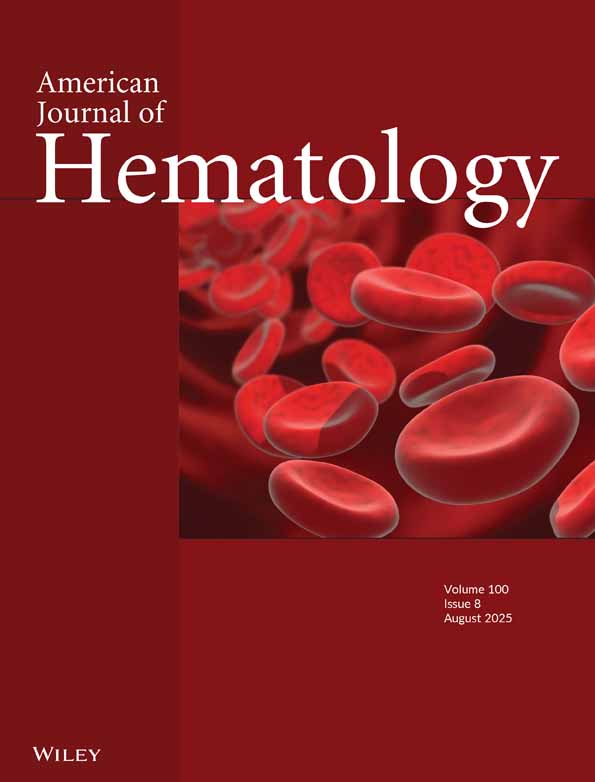Effect of low-dose granulocyte-macrophage colony-stimulating factor (LD-GM-CSF) on platelet transfusion-dependent thrombocytopenia
Abstract
Granulocyte-macrophage colony-stimulating factor (GM-CSF) is a hematopoietic growth factor known to promote the proliferation and differentiation of precursors of granulocytes and monocytes. GM-CSF at standard doses (125–500 μg/m2) alleviates neutropenia secondary to cytotoxic chemotherapy, myelodysplastic syndromes, and aplastic anemia, but has minimal effect on anemia or thrombocytopenia. GM-CSF at doses <30 μg/m2 has been reported to improve platelet counts in some patients exhibiting cytopenia related to hematologic disorders such as aplastic anemia and myelodysplastic syndrome. Lowdose GM-CSF (10–20 μg/m2) was evaluated in 20 patients with transfusion-dependent thrombocytopenia persisting after myeloablative cytotoxic chemotherapy or with disease-related cytopenia. Seven patients (35%) responded as defined by a reduction in the platelet transfusion requirements by at least 75%. Low-dose GM-CSF did not significantly increase neutrophil counts or decrease red blood cell transfusion requirements. These results indicate that low-dose GM-CSF has a thrombopoietic effect in about one-third of patients with platelet transfusion-dependent thrombocytopenia which has not been observed at higher doses. © 1994 Wiley-Liss, Inc.




